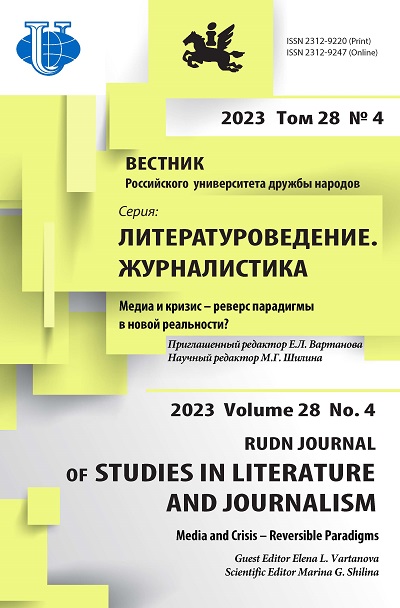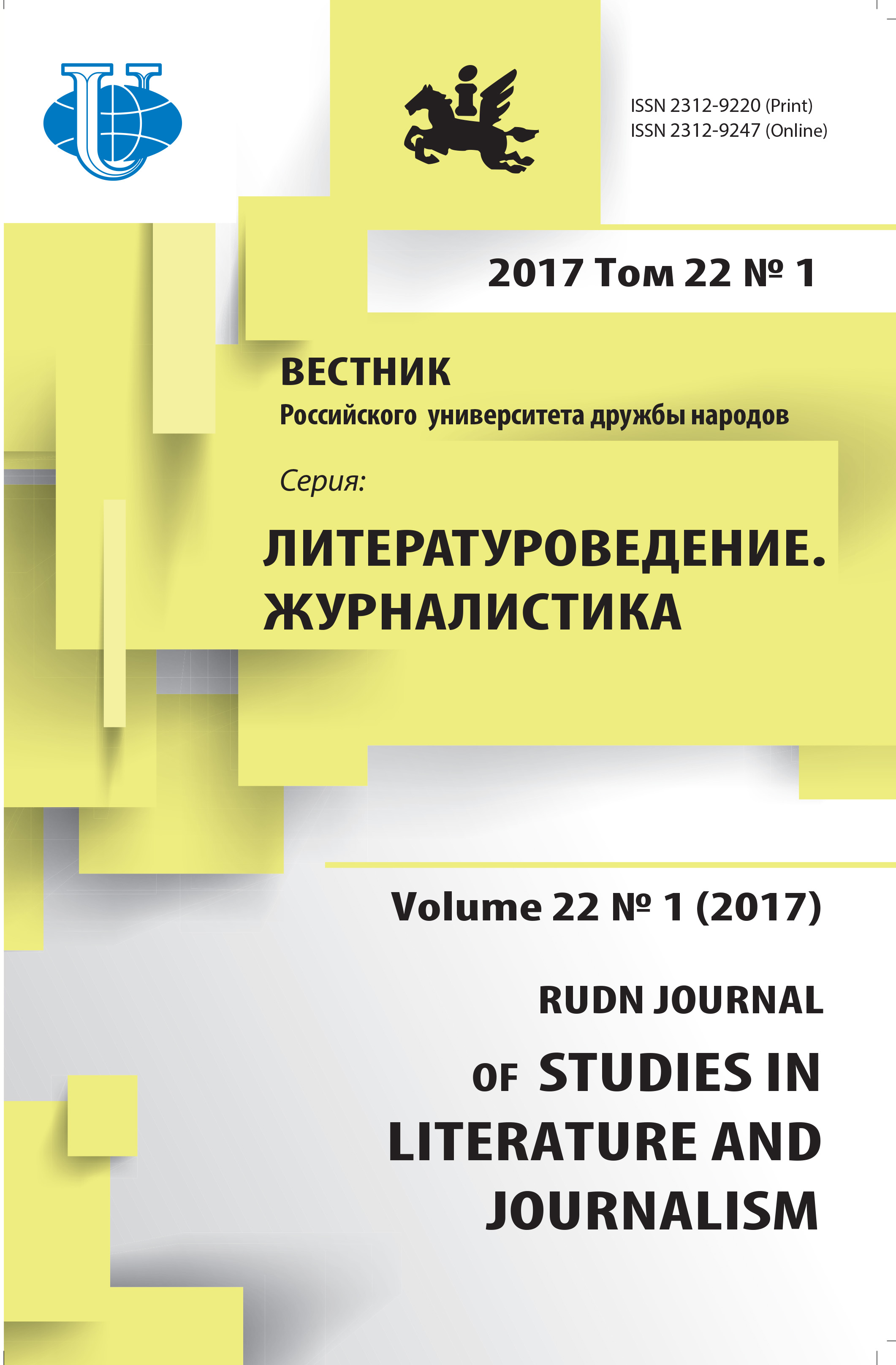PRACTICES OF POLITICAL-ADMINISTRATIVEDISCOURSE IN MEDIA COMMUNICATIONS ON THE INTERNET
- Authors: Barabash V.V.1, Chekunova M.A.1
-
Affiliations:
- Peoples’ Friendship University of Russia
- Issue: Vol 22, No 1 (2017)
- Pages: 130-140
- Section: JOURNALISM
- URL: https://journals.rudn.ru/literary-criticism/article/view/15695
- DOI: https://doi.org/10.22363/2312-9220-2017-22-1-130-140
Cite item
Full Text
Abstract
This article discusses thereasonsand conditionsfor the registrationof suchdiscoursesubspecies,asp olitico-administrativenetworkmediadiscourse.Referring to the diversity of approaches to understanding discourse in the theory and practice of modern philology and massmedia, the author with the help of examples reveals a number of original features that enable him to collective arrive at a reasoned conclusion that political-administrative network mediadiscourse is a complete dynamic set of motivated texts, development and integrity which arise from the traditions and culture of speech actions, typical of the political and administrative sphere of network media communications.
About the authors
Viktor Vladimirovich Barabash
Peoples’ Friendship University of Russia
Author for correspondence.
Email: barabash.victor@gmail.com
Miklukho-Maklaya str., 6, Moscow, Russia, 117198
Maria Anatolyevna Chekunova
Peoples’ Friendship University of Russia
Email: chekunova@gmail.com
Miklukho-Maklaya str., 6, Moscow, Russia, 117198
References
- Baranov A.N., Kazakevich E.G. Parlamentskiye debaty: traditsii i novatsii [Parlamentary debate; traditions and novations]. M.: Znaniye publishers, 1991. 163 p.
- Vasilyev G.N., Zobov V.N., Kelasyev G.N. Problemy individual’nogo i kollektivnogo razuma [Problem of individual and collective mentality]. SaintPetersburg, 1998. 135 p.
- Goroshko E.I. Internetzhanr i funktsionirovaniye yazyka v internete: popytka refleksii [Internet genre and language functioning in Internet: attempt of reflection]. Saratov center “Nauka”, 2009. Issue 6. Availableat:http://www.textology.ru/article.aspx?aId=206 (10.04.2015).
- Ivanov L.Yu. Yazyk interneta: zametki lingvista [The language of Internet; linguist’ notes]. Slovar’ i kul’tura russkoi rechi [Vocabulary and culture of Russian language]. М.: Azbukovnik, 2000.
- Issers O.A. Kommunikativnye strategii i taktiki russkoi rechi [Communicative strategy and tactics of Russian language. 5th]. М.: LKI Publishers, 2008. 288 p.
- Karasik V.I. O tipakh diskursa [Aboutthetypesofdiscourse]. Yazykovaya lichnost’: institutsional’nyi i personal’nyi diskurs [Language personality: institutional and personal discourse]. Volgograd: “Peremena” Publishers, 2000. 228 p.
- Karasik V.I. Yazykovoi krug: lichnost’, kontsepty, diskurs [Language circle: person, concepts, discourse]. Volgograd: “Peremens” Publishers, 2004. 277 p.
- Kozhemyakina E.A. Massovaya kommunikatsiya i mediadiskurs: k metodologii issledovaniya [Mass communication and media discourse]. Bulletin of Belgorod university. Human sciences series. 2010. № 12. Vol. 6. P. 13—21.
- Kormilitsina M.A. Kak pomoch’ adresatu pravil’no interpretirovat’ soobstcheniye [How to interpret a message correctly?]. Problems if speech communication. Saratov university, 2014. Issue 14. P. 14—26.
- Lazutkina E.M. Publitsisticheskiy stil’: novye cherty [Public style: new features]. М.: Eidos Publishers, 2008. 79 p.
- Novikov A.I. Semantika teksta i ee aormalizatsiya [Text semantics and its formalization]. М.: Nauka, 1983. 215 p.
- Problema individual’nogo i kollektivnogo razuma [The problem of individual and collective mentality]. EditorV.N. Kelasyev. SaintPetersburg university, 1998. 175 p.
- Trofimova G.N. Yazykovoy vkus internet epokhi v Rossii [Language test of internet epoch in Russia]. М.: PFUR, 2009. 304 p.
- Bernstein B. Social Class, Language and Socialization // Language and Social Context: Selected Readings. Harmondsworth: Penguin, 1979. P. 157—178.
- Harris Z. Discourse analysis // Language. Baltimore. 1952. Vol. 28. N 17. P. 1—30.
















